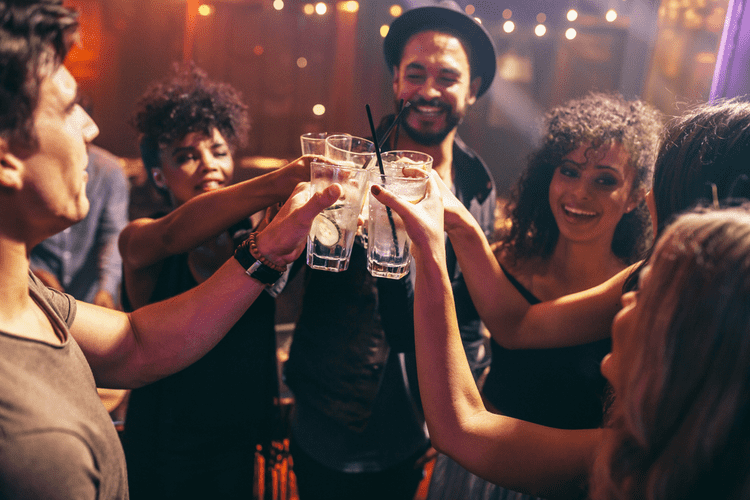Pin Up 415 Az Casino Giriş Onlayn Idman Mərcləri Və Bonusla Qeydiyy
September 14, 2022Free Excel Customer Invoice Templates
September 15, 2022It’s important to understand the connection between loneliness and addiction to effectively treat addiction. Treatment programs that address the underlying causes of addiction, including loneliness, can be more effective in helping people recover from addiction. By treating the root cause of addiction, people can learn to cope with their feelings of isolation and develop healthy relationships with others. Most people need a certain amount of human contact to feel good, and strong social support is necessary to maintain sobriety. It requires effort and patience to develop new relationships or rebuild damaged ones. Realize that feelings of isolation are a part of the process of addiction recovery, and remember that being alone is different from being lonely.

LegitScript recognizes that integrated care is an essential tool in connecting patients with the services they need. One important and effective way to combat loneliness is to learn to become your own best friend. https://www.munotmetalloys.com/blog/buy-generic-tapentadol-online/ Increasing your loneliness in sobriety self-esteem and self-confidence will help you become more comfortable being alone, and will attract more positive people into your support network. Joining a recovery group after addiction treatment is always recommended.
Ten Tips to Help Manage Loneliness During Recovery
Leaving loneliness behind helps you be surrounded by people who care about you and lets you experience fellowship in a healthy and loving way. While the internet ensures that we’re connected on a basic level, the problem is that these relationships are all parasocial. Unfortunately, far too many of us are not building real relationships with real people. As a result, as the predominance of social media rises, our ability to connect and build healthy relationships actually decreases. Practice means taking action every day to move closer to your goals.

Feelings of isolation, depression or anxiety can lead to addiction. On the one hand, some people use alcohol or drugs to function in social situations, as these substances help them feel like the life of the party. However, those struggling with loneliness often use these substances as a substitute for healthy interpersonal relationships. Loneliness is a common experience for individuals in addiction recovery. It can be difficult to navigate feelings of isolation and disconnection when transitioning from a life of substance use to one of sobriety. However, building a support system can be an effective way to combat loneliness and maintain sobriety.
Recovery Support
This can help you build relationships with others who may be suffering. While avoiding social media altogether may be incredibly difficult, it’s important to limit the amount of time you spend on social media. Because social media and parasocial relationships keep you from building real relationships, it can also help to drive feelings of isolation and loneliness.
In early recovery, individuals may feel isolated and disconnected from their community. Volunteering can provide opportunities to connect with others and give back to the community. It can be anything from volunteering at a local shelter, helping at a food bank, or participating in community events. Helping others can bring a sense of purpose and fulfillment that can be critical to maintain sobriety.
How Social Support Fights Loneliness
Alcoholics and those addicted to drugs are usually lonely people. Even if you use these substances in an attempt to combat loneliness, they only exacerbate these feelings in the long run. Drugs, alcoholism and loneliness often go hand-in-hand, meaning those who experience this feeling are at a higher risk for developing a substance use disorder.
- Restoring your relationships can reattach you to another social circle and give you a chance to reconnect.
- But it helps to view loneliness as a symptom to address rather than a permanent state.
- Bridges of Hope is an accredited drug and alcohol detox and rehabilitation center with customized programs tailored to each individual patient.
- However, there are many ways to make the most of your temporary alone time.
Yes, it’s normal to feel lost in early sobriety, especially when dealing with mental illness alongside addiction. This feeling comes up as you adjust to not drinking or using drugs and explore life without them. Over time, secluding yourself can worsen mental and emotional health, which can be a significant setback for anyone recovering from drug or alcohol addiction. For anyone in an addiction treatment program, isolation can feel like a haven. It can be an escape from uncomfortable feelings and situations that could potentially cause relapse or other complications.
Discover top-quality drug rehab in Los Angeles at Gloria Detox and Rehab Center, your trusted partner in addiction recovery. Located in the heart of Van Nuys, CA, our private facility adopts a holistic and personalized approach to help individuals overcome substance abuse. Our residential inpatient treatment and medical detox services are tailored for those in the Los Angeles area seeking a peaceful environment for healing and lifelong sobriety. Experience luxury rehab where every detail is meticulously designed to support individuals struggling with drug or alcohol addiction and underlying mental health concerns. Choose Gloria Detox and Rehab Center for comprehensive and compassionate care on your journey to recovery. Addiction recovery is a difficult journey, and sometimes it can also feel like a very lonely one.
- When individuals begin the road to recovery, they often find themselves struggling to find a sense of direction.
- Not only will they become more susceptible to health conditions like kidney and liver problems or brain damage; they may also be increasingly vulnerable to death by suicide.
- They must learn to take advantage of solitude and enjoy being with the human being they are and have always been.
Recovering from addiction is a multi-faceted journey that extends beyond the mere cessation of substance use. Low self-confidence, a frequent companion to addiction, can become particularly pronounced during the holiday festivities. The societal emphasis on joy and togetherness may intensify feelings of inadequacy and self-doubt for individuals in recovery.



